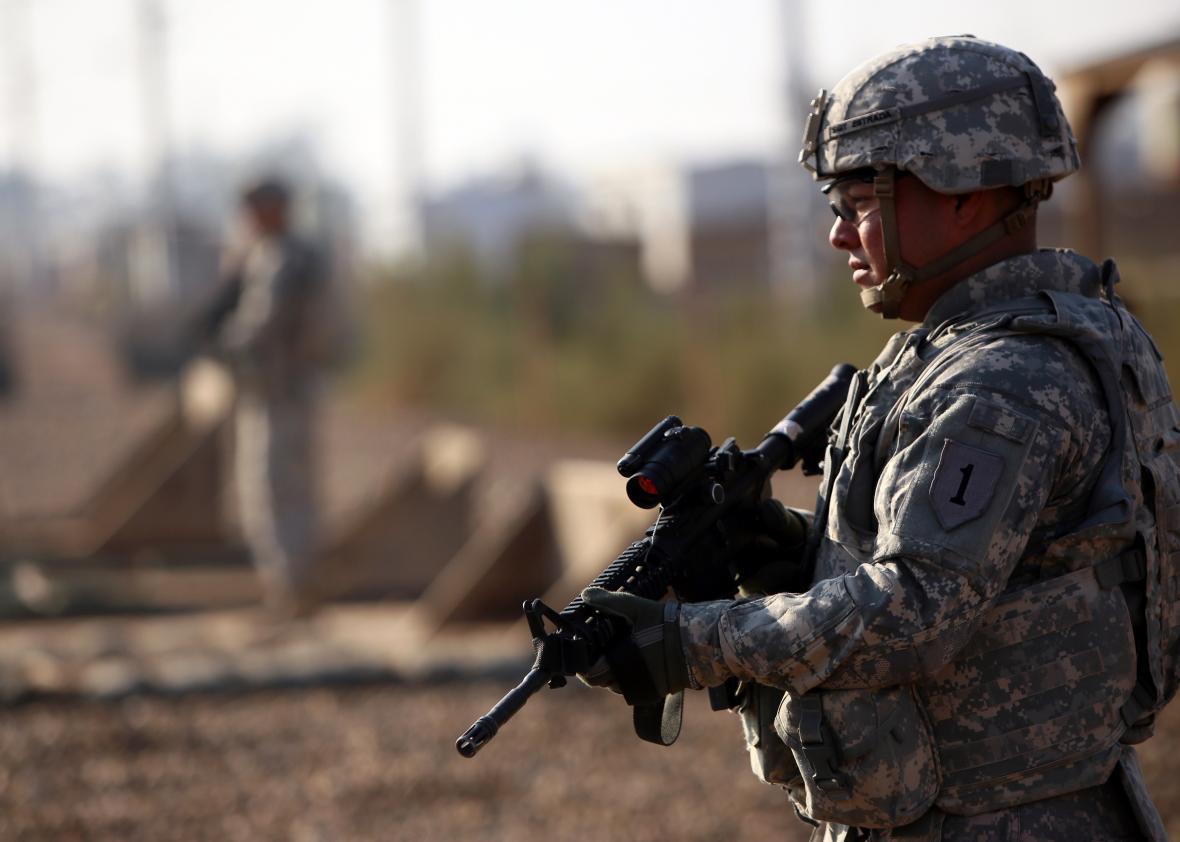The U.S. Congress’s non-sequitur of a response to last week’s attack in Paris has been to focus its attention primarily on Syrian refugees seeking asylum in the United States, rather than to figure out how to defeat the people who planned the attack.
Tomorrow, less than a week after the attack, a bill will go to a vote on the House floor preventing Syrian and Iraqi refugees from entering the United States until the government can verify they don’t pose a security threat. Others have been pushing for something more extreme. The urgency with which Congress is acting on this refugee “threat” is all the more striking, given that, as critics have noted, for all its bluster, Congress has never actually authorized military action against ISIS.
It’s slightly disingenuous to put the blame for this state of affairs entirely on Congress. The Obama administration was more than happy to bomb ISIS for six months before even asking Congress for permission to do so, arguing that the 2001 authorization to go after the perpetrators of 9/11 covers these strikes against a group that didn’t even exist at the time. (Hillary Clinton repeated this dubious line of reasoning at Saturday night’s debate.) Still, Congress has had more than nine months to fulfill one of its most basic oversight functions—authorizing when and where the U.S. military can be deployed for extended periods—and has failed to do so. Until it does, it’s hard to take any criticism of the campaign against ISIS coming out of the House or Senate seriously.
Senators Tim Kaine (D-VA) and Jeff Flake (R-AZ) have introduced a new draft authorization, arguing in an op-ed today that the Paris attacks should spur a new debate on the issue:
But Congress has been strangely silent about the war. We criticize the President, but won’t vote to authorize, stop or refine what he is doing. Congressional silence sends a message. Our allies wonder whether we have the resolve to work with them to stop this threat. ISIS must take comfort in the seeming ambivalence of Congress. Most damning, our troops—ordered to risk their lives thousands of miles from home—wonder whether Congress even supports the dangerous missions they must carry out every day.
The prospects for such a motion seem dim, with House Speaker Paul Ryan saying on Tuesday that the 2001 resolution covers the current operation and that congress “will revisit all of these issues later,” even as he called for an immediate “pause” in the resettlement of refugees.
The authorization for force against ISIS that Obama submitted to Congress in February died a quiet death about two months later. Republicans argued that language in the bill ruling out “enduring offensive ground operations” was too restrictive. Liberals worried it was too vague and would open the door to a new U.S. military presence in the Middle East. But these concerns should be reconcilable. The main reason for Congress’s reluctance is that it’s far easier to criticize a strategy than to sign on to it and take ownership.
As an L.A. Times analysis this week noted, take away the posturing and calls for strength, leadership and resolve, and the Syria war plans of the leading GOP candidates are really just intensifications of what the Obama administration is already doing anyway: more airstrikes, more aid to the Kurds, more special ops advisors. Only Lindsey Graham, polling below one percent, is calling for the deployment of large numbers of U.S. ground forces. Graham proposed his own authorization this week that is “not limited by Time, Geography or Means.” It has less of a chance than Kaine and Flake’s.
In short, there’s very little political upside to actually authorizing what would essentially be “Obama plus.” (Just ask Hillary Clinton how she feels about still having to defend her Iraq war vote.) Criticizing from the sidelines and picking on refugees is much safer.
